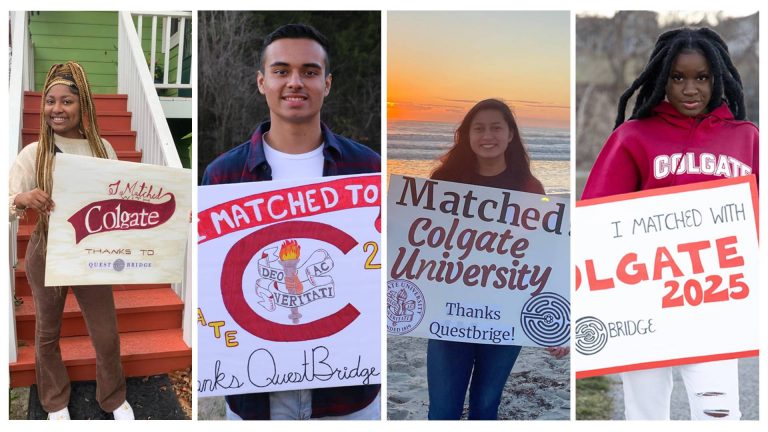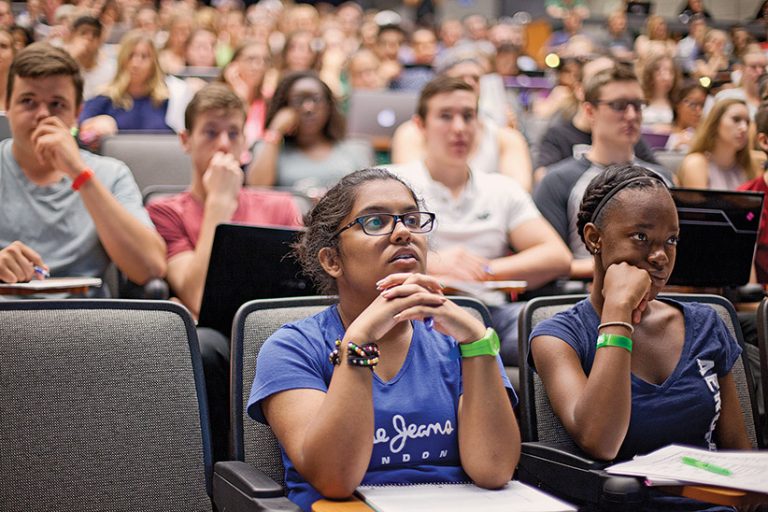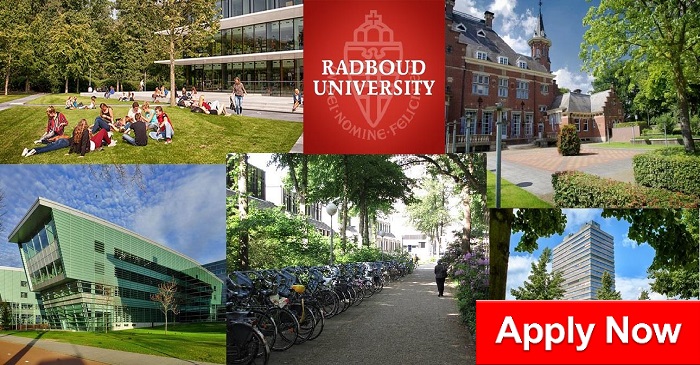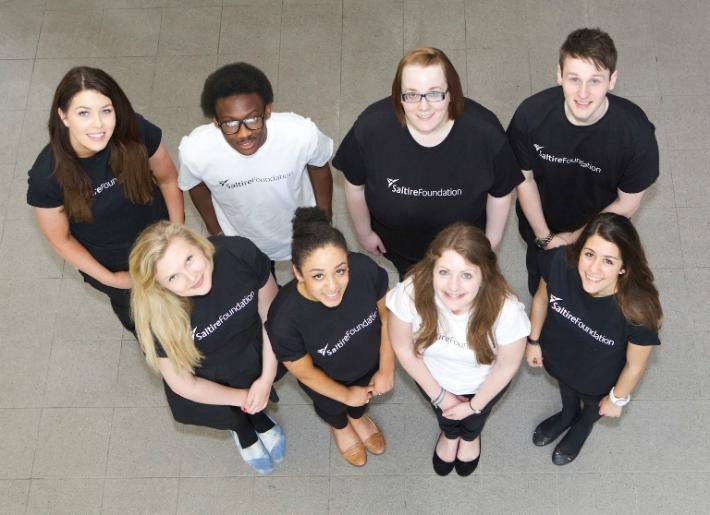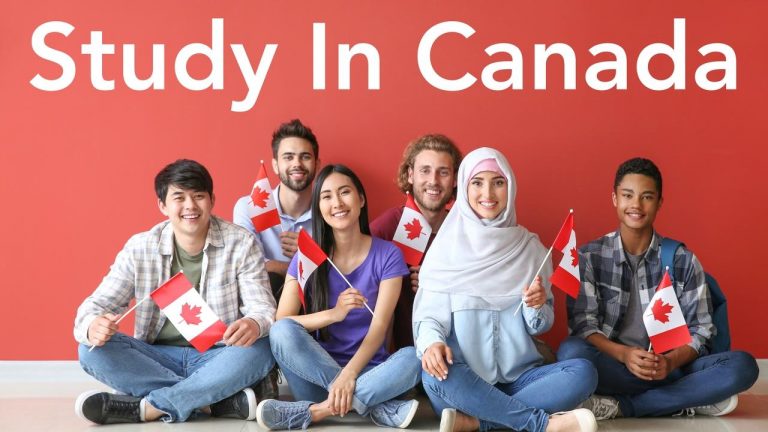Student Visa UK – How to Get UK Student Visa Easily
You can apply for a student visa to study in the UK if you’re 16 or over and you:
- Have been offered a place on a course by a licensed student sponsor
- Have enough money to support yourself and pay for your course – the amount will vary depending on your circumstances
- Can speak, read, write and understand English
- Have consent from your parents if you’re 16 or 17 – you’ll need evidence of this when you apply
If you’re 16 or 17 and you want to study at an independent school in the UK, you may be eligible for a Child Student visa instead.
This visa has replaced the Tier 4 (General) student visa.
If you or your family are from the EU, Switzerland, Norway, Iceland, or Liechtenstein
If you or your family member started living in the UK by 31 December 2020, you may be able to apply to the free EU Settlement Scheme.
The deadline to apply was 30 June 2021 for most people. You can still apply if either:
- You have a later deadline – for example, you’re joining a family member in the UK
- You have ‘reasonable grounds’ for being unable to apply by 30 June 2021 – for example, you had an illness or were the victim of domestic abuse
When to apply for Student Visa UK
When you can apply depends on whether you’re applying from inside or outside the UK.
Applying from outside the UK
- The earliest you can apply for a visa is 6 months before you start your course.
- You’ll usually get a decision on your visa within 3 weeks.
Applying from inside the UK
- The earliest you can apply is 3 months before your course starts.
- You must apply before your current visa expires. Your new course must begin within 28 days of your current visa expiring.
- You’ll usually get a decision within 8 weeks.
How long you can stay
- How long you can stay depends on the length of your course and what study you’ve already completed in the UK.
- If you’re 18 or over and your course is at degree level, you can usually stay in the UK for up to 5 years. If it’s below degree level, you can usually stay in the UK for up to 2 years.
Staying longer in the UK
You may be able to:
- Extend your visa if you’re eligible, for example to continue your studies in the UK
- Switch to a Student visa from another visa if you’re already in the UK
- Switch to a Graduate visa to stay in the UK for at least 2 years after successfully completing your course
When you can travel to the UK
You can arrive in the UK before your course starts. This can be either:
- Up to 1 week before, if your course lasts 6 months or less
- Up to 1 month before, if your course lasts more than 6 months
UK Student Visa Fees
It costs:
- £348 to apply for a Student visa from outside the UK
- £475 to extend or switch to a Student visa from inside the UK
You must pay the visa fee for each person that joins you.
Healthcare surcharge
You’ll also have to pay the healthcare surcharge as part of your application.
How much you pay depends on how long your visa lasts. Check how much you’ll have to pay before you apply.
Your partner and children
You may be able to bring your partner and children (‘dependants’).
What you can and cannot do
You can:
- Study in UK
- Work as a student union sabbatical officer
You may be able to work – how much depends on what you’re studying and whether you’re working in or out of term-time.
You cannot:
- Claim public funds (benefits) and pensions
- Work in certain jobs, for example as a professional sportsperson or sports coach
- Be self-employed
- Study at an academy or a local authority-funded school (also known as a maintained school)
If your application is successful, you’ll be told what you can and cannot do on a Student visa.
How to Get UK Student Visa
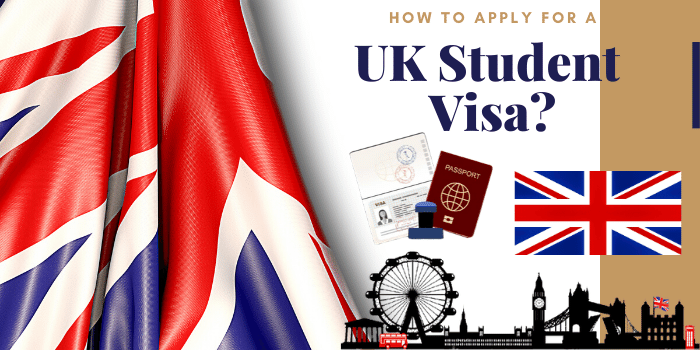
- You can apply for a Student visa if you’re 16 or over and want to study on a further or higher education course in the UK.
- You are currently viewing:Check what you can and cannot do on this visa
- Check what courses you can study on this visa
- Check if you can bring your partner or children (‘dependants’) with youIf you’re under 18 and you want to study at an independent school in the UK, you may be eligible for a Child Student visa instead.
- Prepare the evidence you need
- Check what documents you can use as evidence
- Prove your knowledge of the English language
- Check if you need a tuberculosis (TB) testIf you’re doing a masters degree or above, you may need to apply for the Academic Technology Approval Scheme (ATAS) certificate.
- Apply from outside the UK
- Apply from outside the UK £348. You’ll need to prove your identity as part of your application.You’ll usually get a decision within 3 weeks.
- Apply from inside the UK,Hidethis section
- Apply to extend if you’re already in the UK on Student visa (or a Tier 4 (General) visa) £475
- Apply to switch to this visa if you’re already in the UK £475You’ll need to prove your identity as part of your application.You’ll usually get a decision within 8 weeks.
- You may be able to pay more to get a faster decision you’ll be told if you can when you apply
- After you arrive in the UK,Hidethis section
- Find out how to get your Biometric Residence Permit (BRP) if you were told you’d get one when you appliedYou might be able to extend your visa to stay longer in the UK.
- Check if you can extend your visa. If you break the conditions of your visa you may not be able to come to the UK again.
Apply for Student Visa UK
Apply outside the UK
As part of your application, you’ll need to prove your identity. How you do this depends on where you’re from and what type of passport you have.
You’ll either:
- Give your fingerprints and a photograph (biometric information) at a visa application centre
- Use the ‘UK Immigration: ID Check’ app to scan your identity document – you’ll also create or sign into your UK Visas and Immigration (UKVI) account
You’ll be told what you need to do when you apply.
Once you’ve started your application, you can save your form and complete it later.
How long it takes to get a decision
You’ll usually get a decision within 3 weeks.
If you need to give your biometric information at a visa application center, you may be able to pay to get a faster decision. Check if your visa application center offers faster decisions and other services.
Apply inside the UK
You may be able to apply to:
- Extend your Student visa
- Switch to a Student visa from another type of visa
After you apply
You’ll be contacted if your application is complex and will take longer, for example, because:
- Your supporting documents need to be verified
- You need to attend an interview of your personal circumstances (for example if you have a criminal conviction)
If you need to change something in your application after you’ve sent it to contact UK Visas and Immigration (UKVI).
You can ask to withdraw your application by contacting UKVI. Your fee will only be refunded if UKVI has not started processing your application.
After you get a decision
If your application is successful, you’ll get either:
- A biometric residence permit – if you gave your biometric information at a visa application centre
- A digital immigration status which you can view and prove online – if you used the ‘UK Immigration: ID Check’ app
Documents you’ll need to apply for Student Visa UK
When you apply for your Student visa you must provide:
- A current passport or other valid travel documentation
- A Confirmation of Acceptance for Studies (CAS) from your course provider
You may also need to provide:
- Proof you have enough money to support yourself and pay for your course – this will vary depending on your circumstances
- A valid ATAS certificate if your course and nationality require it
- Proof of parental or other legal guardian consent if you’re under 18
- Proof of your relationship to your parent or guardian if you’re under 18
- Your tuberculosis test results
- Written consent for your application from your financial sponsor if you’ve received sponsorship for your course fees and living costs in the last 12 months
You may need to provide additional documents depending on your circumstances.
You need a blank page in your passport for your visa if you need to give your biometric information (fingerprints and a photograph) at a visa application center.
You’ll be told if you need to do this when you apply.
If you’re under 18
If you’re under 18 you’ll need written consent from both parents or legal guardians (or one parent if they have sole responsibility).
This must include their consent for:
- Your visa application
- Your living and care arrangements in the UK
- Your travel to the UK
You’ll also need to provide a copy of your birth certificate (or another government-issued document) that shows the names of your parents.
Money you need
You must have enough money to pay for your course and support yourself in the UK.
How much money you need depends on your circumstances and what you’re applying for.
Course fee
You need enough money to pay for your course for 1 academic year (up to 9 months). The amount you need to pay will be on your Confirmation of Acceptance for Studies (CAS).
If you’ve been in the UK with a valid visa for at least 12 months, you do not need to prove you have this money for your visa application.
Money to support yourself (‘financial requirement’)
You’ll need to show you have enough money to support yourself – unless you’ve been in the UK with a valid visa for at least 12 months on the date of your application.
How much money you need depends on where you will be studying. You’ll need either:
- £1,334 per month (for up to 9 months) for courses in London
- £1,023 per month (for up to 9 months) for courses outside London
If you’re boarding at a residential independent school, you’ll need to pay boarding fees instead. The amount you need to pay will be on your CAS.
London means the City of London and the 32 London boroughs.
You’ll need to prove you have extra money for each family member you bring with you.
You must have this money for at least 28 consecutive days. The end date of the 28-day period must be within 31 days of the date you apply for your visa.
Example: If you submit your application on 1 January 2021, you’d have to show that the funds were in your bank account for at least the 28-day period ending on 1 December.
If you have a student loan or financial sponsorship, you’ll need to provide evidence of this from your loan or sponsorship company.
When you do not need to prove you have money to support yourself
You do not need to prove the financial requirement if:
- You’ve had a UK visa for 12 months prior to the date of your Student visa application – you must currently be in the UK
- You’re applying as a student union sabbatical officer
- You’re applying as a postgraduate doctor or dentist on a recognised foundation programme
If you’re from a country listed under the ‘differential evidence requirement’
You do not need to prove you have enough money to support yourself if you’re a British national overseas or from one of the following countries or territories:
- Australia
- Austria
- Bahrain
- Barbados
- Belgium
- Botswana
- Brazil
- Brunei
- Bulgaria
- Cambodia
- Canada
- Chile
- China
- Croatia
- Republic of Cyprus
- Czech Republic
- Denmark
- The Dominican Republic
- Estonia
- Finland
- France
- Germany
- Greece
- Hong Kong
- Hungary
- Iceland
- Indonesia
- Ireland
- Italy
- Japan
- Kazakhstan
- Kuwait
- Latvia
- Liechtenstein
- Lithuania
- Luxembourg
- Macao
- Malaysia
- Malta
- Mauritius
- Mexico
- Netherlands
- New Zealand
- Norway
- Oman
- Peru
- Poland
- Portugal
- Qatar
- Romania
- Serbia
- Singapore
- Slovakia
- Slovenia
- South Korea
- Spain
- Sweden
- Switzerland
- Taiwan
- Thailand
- Tunisia
- United Arab Emirates
- United States of America
However, you might be asked to provide this evidence before you get a decision on your application.
If you do need to provide it, you’ll be contacted by UK Visas and Immigration (UKVI) after you’ve submitted your application.


